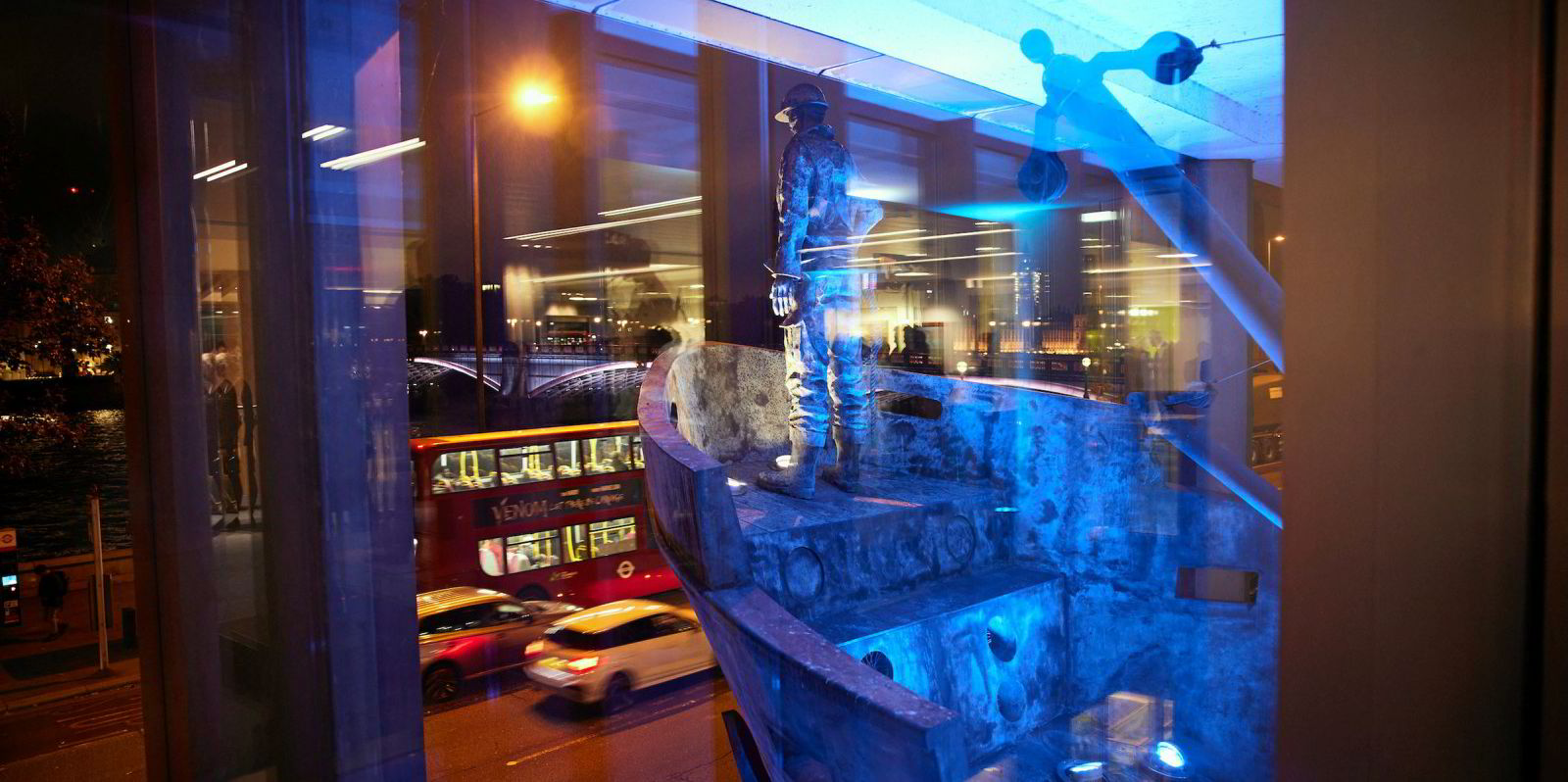A coalition now made up of 34 nations and the European Commission has filed papers calling on a key International Maritime Organization committee to decide in November to set the United Nations' body towards a goal of zero-carbon emissions over the next three decades.
The debate at the Maritime Environmental Protection Committee (MEPC) is scheduled to begin just days after the closing of the COP26 climate conference in Glasgow, where pivoting to a zero-carbon future is a key agenda point.
The IMO currently aims for shipping to cut its greenhouse gas emissions in half by 2050.
The calls on the MEPC began with a submission from three Pacific island nations where climate change is an acute threat.
The Marshall Islands, Kiribati and Solomon Islands urged the committee to adopt a resolution calling for those emissions to be cut to zero by 2050.
They cited reports by the UN's Intergovernmental Panel on Climate Change that described the goals of the Paris Agreement as at risk of being unreachable without urgent action.
"The reports confirm that failure to achieve these goals will realise the existential threat faced by some states," officials of the three nations wrote in their August submission.
Key flag state
While all three islands are at the sharp end of climate change, the submission also includes the world’s second-largest shipping flag in the form of the Marshall Islands.
That was followed by a submission by the US, UK, Norway and Costa Rica that takes the proposal a step further.
31 October to 12 November
High-level delegations from around the world meet in Glasgow for the COP26 climate conference.
22 to 26 November
The 77th session of the IMO's Maritime Environment Protection Committee meets to discuss the next steps for shipping's decarbonisation.
The coalition has called for an IMO target to cut carbon by 40% by 2030. The nations also called for a 2040 target to ensure that the path to zero carbon a decade later is on track.
"The committee must now urgently begin its revision of the initial strategy," the four nations said.
This was followed this month by a submission from the European Commission and the 27 countries of the European Union supporting the US and Marshall Islands' coalitions.
As TradeWinds has reported, the International Chamber of Shipping (ICS) has recognised the shift in the political winds, filing its own papers supporting a goal for net-zero carbon emissions in 2050.
But in its submission for the MEPC, the ICS said that setting a zero-carbon goal would be an empty gesture without swift adoption of a framework that would ensure that reaching the target is possible, including a $5bn research and development fund and market-based measures to bridge the gap between the price of cheaper fuels and more expensive alternatives.
To meet the more ambitious goal for 2050, thousands of ships with zero-carbon technology will have to be on the water by 2030.
"The message to the governments is that ... they have to wake up to understand the absolute enormity of the challenge which they are setting for the industry," Simon Bennett, the ICS deputy secretary general, said.
Read more
- After COP26, IMO to weigh shifting to zero carbon goal as call grow
- That’s oil, folks! The sun is slowly setting on tankers
- Obsession over future fuels does not help decarbonise shipping, experts say
- Shipping struggles to respond to carbon urgency amid technology challenges
- EU joins push for zero-emissions shipping ahead of key IMO meeting




